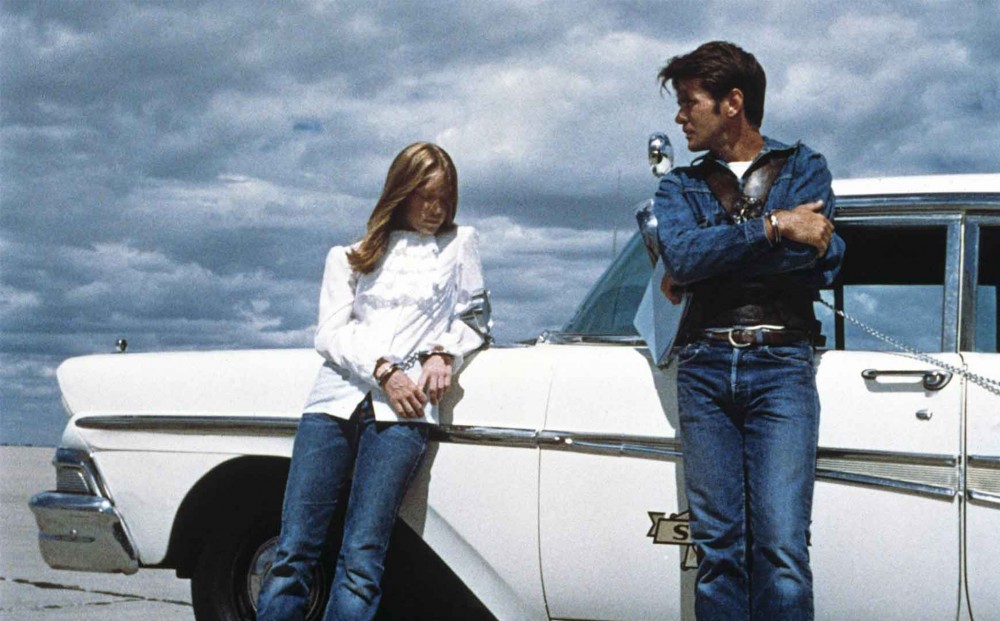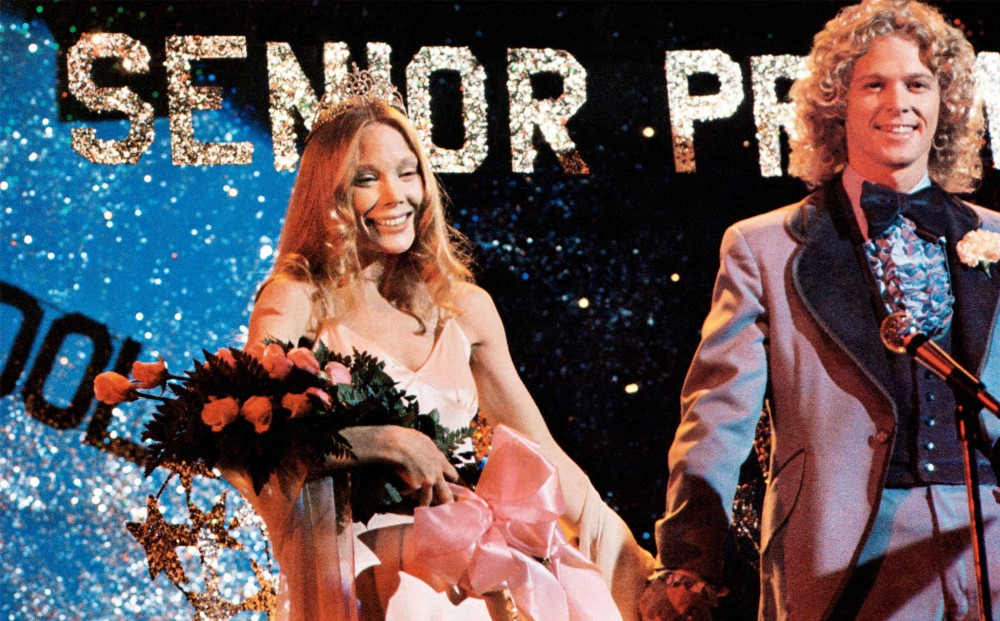BADLANDS & CARRIE
Tuesday, August 28
BADLANDS
| 12:30 4:20 8:20 |  |
(1973, Terrence Malick) “I can’t allow that,” states soft-spoken James Dean-influenced garbage man Martin Sheen, just prior to cold-blooded murder. Based on the 1958 Starkweather-Fugate murders, Malick’s debut is a classic outlaw-couple-on-the-run story, with Sheen taking baton twirler Sissy Spacek – after blasting her father Warren Oates – on a crime spree across prairies towards Saskatchewan – where Sheen plans to become a Mountie. But that’s only the first level of Malick’s unique work, the continuing mayhem accompanied by surrealistically opaque dialogue; distanced by dazzling color photography of ethereal dreamlike landscapes (at one point, in the middle of nowhere, they dance to the car radio in headlight beams and a semi-classical score in counterpoint); all narrated in the past tense in Spacek’s romance magazine style: “He wanted to die with me and I dreamed of being lost forever in his arms.” Malick cameos as the architect, because “we didn’t have enough money to fly someone in” – but seeing himself onscreen proved so traumatic that he’s been camera-shy ever since. DCP. Approx. 95 min.
REVIEWS
“The most assured first film by an American since Citizen Kane.”
– David Thomson
“So rich in ideas it hardly knows where to turn. Transcendent themes of love and death are fused with pop-culture sensibility and played out against a Midwestern background, which is breathtaking both in its sweep and in its banality. Days of Heaven put Malick’s intuitions into cogent form, but this is where his art begins.”
– Dave Kehr
“The story moves on with an energetic fatalism. Above all, Badlands balanced the externals of landscape and violence with their imaginative resonance. It was legitimate for the film to avoid explanation because the action was so dense and eloquent, the myth so solid and matter-of-fact.”
– David Thomson
“Brilliantly composed with a loose, directionless swing that looks easy (but isn’t), and a superbly delicate, literate voiceover from Spacek that conveys the bizarre babes-in-the-wood quality of their life together on the run… An unmissable, transcendentally beautiful classic.”
– Peter Bradshaw, The Guardian
CARRIE
| 2:25 6:20 10:15 |  |
(1976, Brian De Palma) “An absolutely spellbinding horror movie, with a shock at the end that's the best thing along those lines since the shark leaped aboard in Jaws. It's also (and this is what makes it so good) an observant human portrait. This girl Carrie isn't another stereotyped product of the horror production line; she's a shy, pretty, and complicated high school senior who's a lot like kids we once knew. There is a difference, though. She has telekinesis, the ability to manipulate things without touching them. It's a power that came upon her gradually, and was released in response to the shrill religious fanaticism of her mother. It manifests itself in small ways. She looks in a mirror, and it breaks. Then it mends itself. Her mother tries to touch her and is hurled back against a couch. But then, on prom night...” – Roger Ebert. DCP. Approx. 97 min.
REVIEWS
“A teasing, terrifying, lyrical shocker, directed by Brian De Palma, who has the wickedest baroque sensibility at large in American movies. Pale, gravel-voiced Sissy Spacek gives a classic chameleon performance as a repressed high-school senior whose energy is released only telekinetically, and Piper Laurie plays her deep-voiced, sexy fundamentalist mother.”
– Pauline Kael


